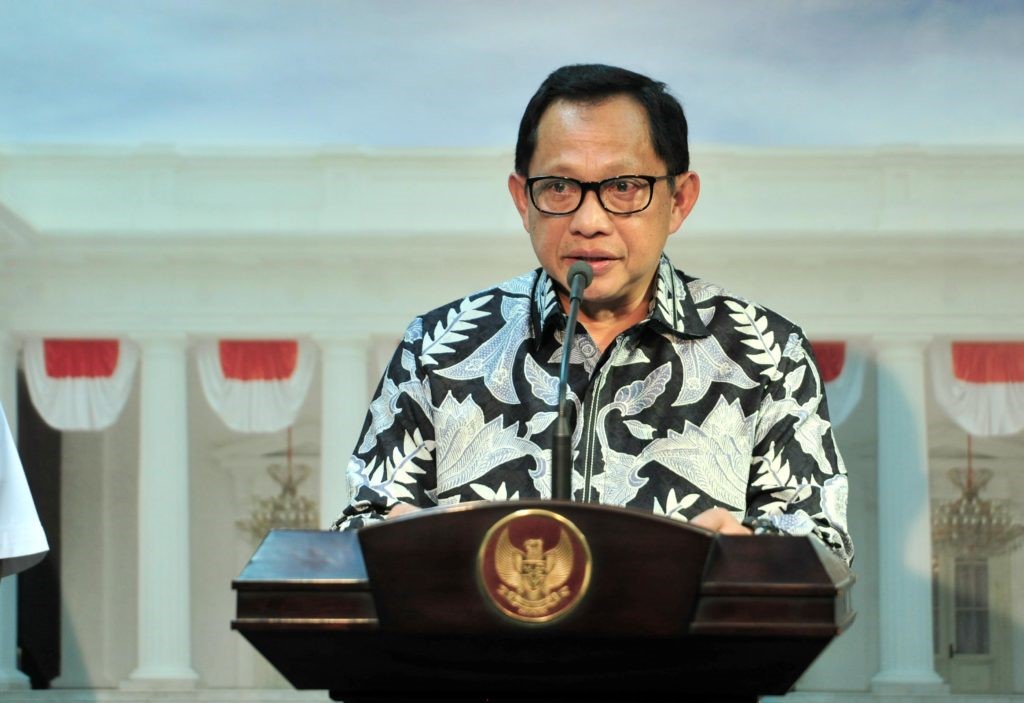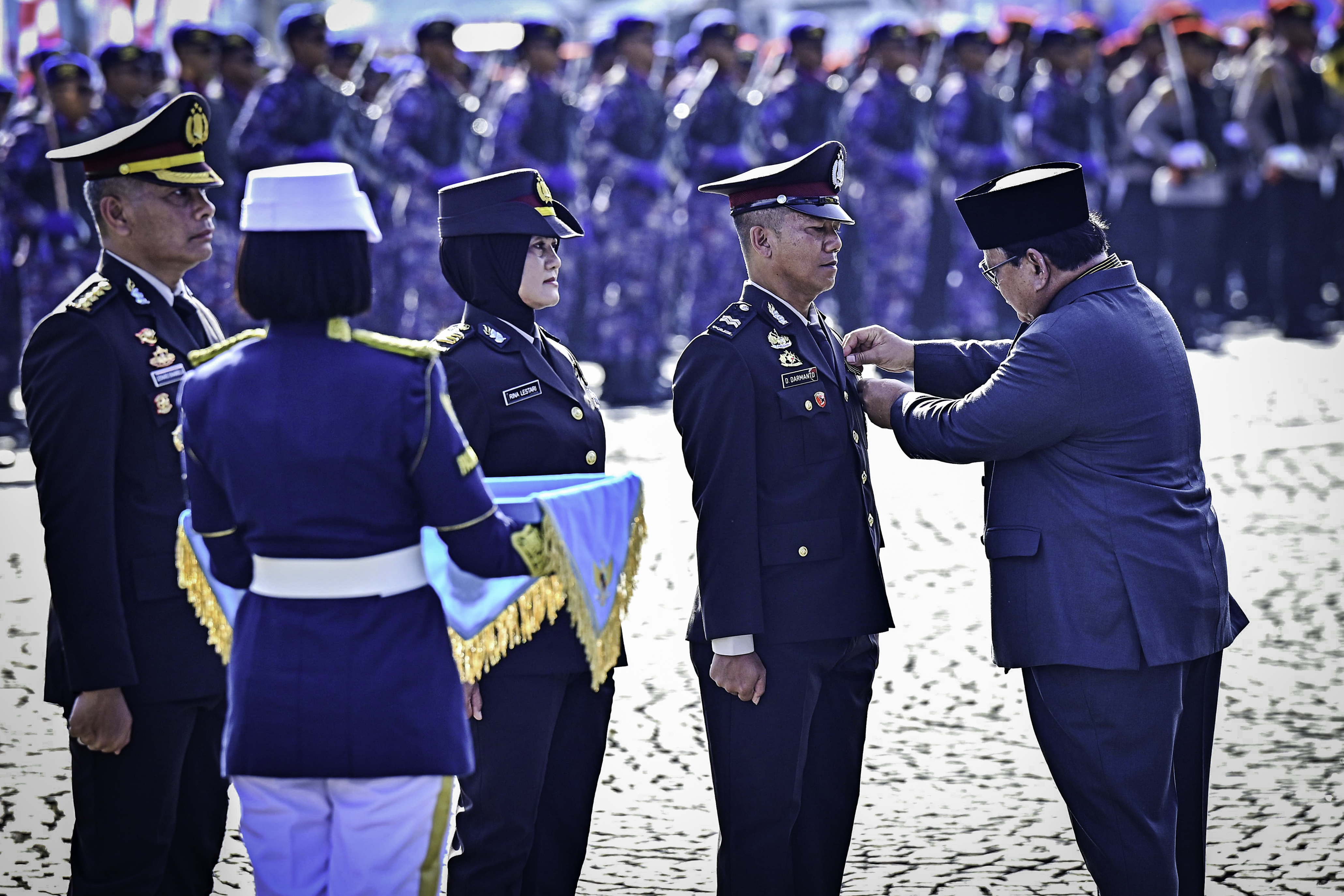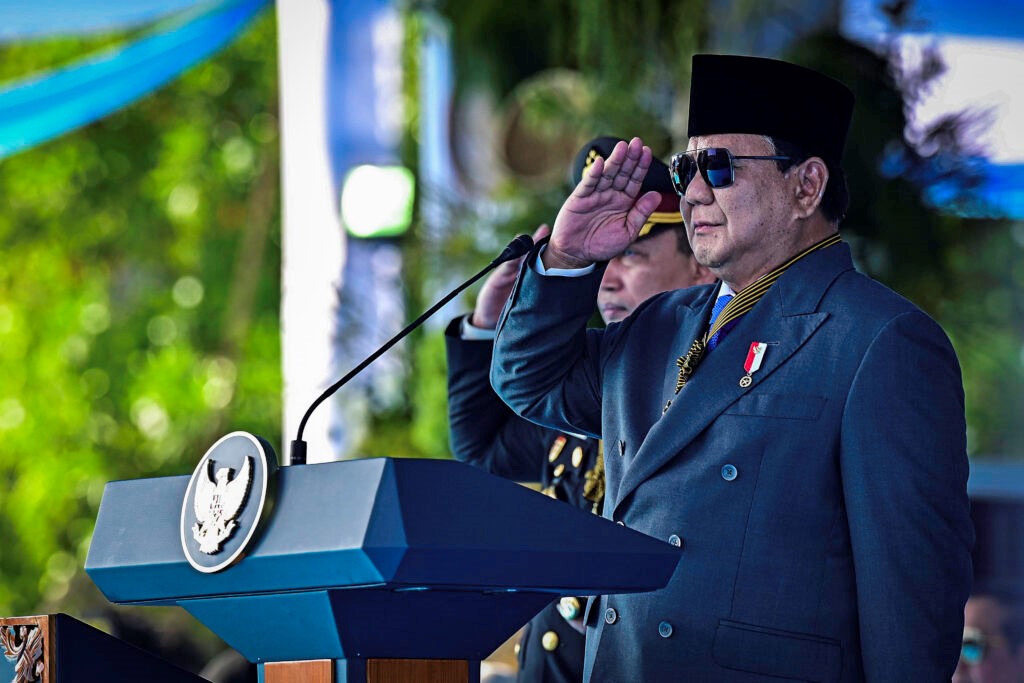Gov’t to Issue Instruction on Java-Bali Emergency Restrictions

Minister of Home Affairs Tito Karnavian. (Photo by: PR of Cabinet Secretariat)
The Government has pushed for the finalization of Instruction of Minister of Home Affairs on Java-Bali Emergency Public Activity Restrictions (PPKM Darurat) policy that will take effect from 3 July 2021.
According to Minister of Home Affairs Tito Karnavian, the Instruction contains the enforcement of stricter regulations in limiting public activities and a strict sanction for regional heads violating the provisions.
The Minister made the statement during a virtual joint press conference with Coordinating Minister for Maritime Affairs and Investment Luhut B. Pandjaitan, who also serves as Deputy Chairman of the COVID-19 Mitigation and National Economic Recovery, and Minister of Health Budi Gunadi Sadikin, Thursday (1/7).
“The Instruction on the implementation of Java-Bali PPKM Darurat from 3 to 20 July has been agreed by Coordinating Minister and other Ministers. We will implement Law Number 23 of 2014 on Regional Governments, considering that the regulation stipulates obligations and sanctions for regional heads,” Tito said.
Tito went on to say that the synergy of all parties is the main key in implementing PPKM Darurat, including the role of the Central Government, regional governments, the Indonesian National Defense Forces (TNI) and the Indonesian National Police (Polri), and public figures to control community activities throughout Java and Bali.
“The key is synergy. This is a matter of social control, controlling a large number of people in Java-Bali. This is not an easy task. Collaboration is crucial. The key to our system is the cooperation of the Regional Leader Coordinating Forum (Forkopimda) with public figures,” he stressed.
The Minister also revealed that his Ministry has ordered all governors, who helm the Forkopimda at the provincial level, to coordinate with the ranks of TNI, Polri, the Prosecutor’s Office in the regions, as well as Speaker and all members of Forkopimda at the regency/city level to discuss strategies to impose the PPKM Darurat set by the Central Government.
“We must discuss the strategy and the measures first. Afterwards, we continue with Level II Forkopimda meeting led by regents, mayors, Military Regional Commands (Dandim), Regency Police Chiefs (Kapolres), District Prosecutor’s Office Heads (Kajari), and they give directives to the ranks at lower levels,” he said.
Tito further emphasized that the implementation of PPKM Darurat will be monitored periodically. The Government will also anticipate potential crowds that occur ahead of Eid al-Adha on 20 July.
“We will monitor the implementation of PPKM Darurat every 3 days, stricter monitoring activities will be carried out before the restrictions end because there will be a high risk of virus transmission ahead of Eid al-Adha. In order to anticipate the Eid spikes, we will conduct a special meeting,” he said.
The Minister also underscored that the PPKM Darurat must be carried out firmly and strictly so that the rate of COVID-19 transmission stops soar that might put pressure on the community’s economic recovery.
“It’s better if we step up firmly and do it very seriously during these three weeks. After three weeks, we will evaluate the implementation. We must extend the restrictions again so that the economic contraction will be more pronounced,” he added.
On that occasion, Tito also urged the public to remain calm and avoid panic buying since the critical sectors, such as the food and beverage industry still continue to operate 100 percent with strict implementation of health protocols.
“A number of critical sectors, such as logistics and transportation, the industry that provides basic daily needs of the community, and industry that provides food-beverage and its supporting elements will still operate,” he said, adding the pharmaceutical industry and medical sector can also operate 24 hours a day.
“In principle, the food and beverage supplies are ready despite the logistical reserves prepared by the Government,” he remarked. (DND/UN) (RIF/LW)








